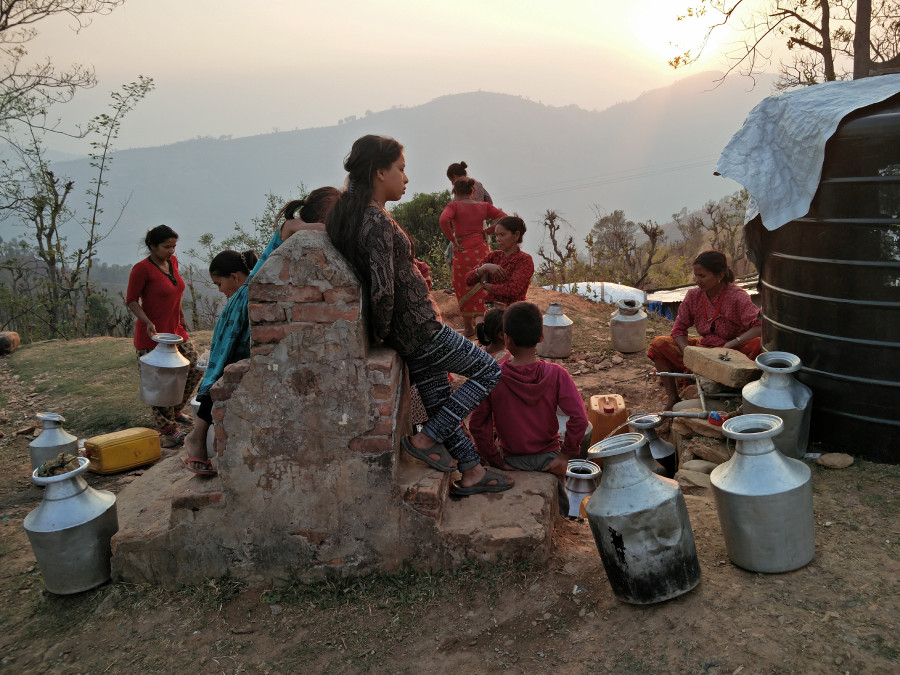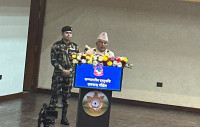National
UN urges need for gender lens to address climate change and other security crises in the time of this pandemic
A new report stresses urgent gender-responsive actions as the global pandemic further adds up crisis upon crisis in communities already affected by climate change and conflict.
Post Report
Gender inequality is not only shaping the experience of the crisis, but also prospects for resilience and recovery of countries around the world, as they continue to reel under the devastating social and economic impacts of the Covid-19 pandemic, according to a UN report.
The new report – Gender, Climate and Security: Sustaining Inclusive Peace on the Frontlines of Climate Change – by several UN agencies like UN Environment Programme (UNEP), UN Women, the UN Development Programme (UNDP), and the UN Department of Political and Peacebuilding Affairs (UNDPPA) has established the close links between gender, climate, and security, showing that women on the frontlines of climate action are playing a vital role in conflict prevention and sustainable, inclusive peace.
According to the report, communities affected by conflict and climate change face a double crisis and the ongoing pandemic has only compounded the impacts of climate change on food security, livelihoods, social cohesion, and security.
Such added challenges can undermine decades of development gains, escalate violence, and also disrupt fragile peace processes, reads the statement issued on Tuesday.
“Unequal access to land tenure, financial resources, and decision-making power can create economic stress for entire households in times of crisis, leaving women disproportionately exposed to climate-related security risk,” Inger Andersen, UNEP’s executive director was quoted as saying in the statement. “The climate crisis stretches well beyond just climate, and tackling it effectively requires responses that address the links between gender, climate and security–we must ensure no one is left behind.”
The report has said that women and girls are facing disproportionate economic burdens due to different types of marginalization; gendered expectations can lead men and women to resort to violence when traditional livelihoods fail; and important socio-economic shifts can result from changes to patterns of migration.
“Gender inequality, climate vulnerability, and state fragility are strongly interlinked,” said UNDP Administrator Achim Steiner.
The report stressed the urgent need for gender-responsive action to tackle these linked crises. It has also pointed out that interventions around natural resources, the environment and climate change, for example, provide significant opportunities for women’s political and economic leadership and strengthen their contributions to peace.
Likewise, sustainable natural resource programming also offers opportunities to mitigate sexual and gender-based violence in conflict.
Recognizing that peace and security, human rights, and development are interdependent is vital to forge a better future, said the report.
The report has called for more investment for gender equality. Women’s empowerment is required in fragile states and especially in sectors related to natural resources where it is particularly low, it said. “Similarly, gender considerations should also be fully reflected in emerging policy and programming on climate-related security risks with highlighting opportunities for leadership and inclusion of women and marginalized groups in decision-making processes."
“Building back better with a gender lens means ensuring our post-Covid-19 economies tackle the fundamental inequalities in society and end violence against women,” said UN Women Executive Director Phumzile Mlambo-Ngcuka. “Women are a powerful force to rebuild societies more securely, from providing food and shelter, to generating vital income and leading sustainable change.”




 20.12°C Kathmandu
20.12°C Kathmandu














